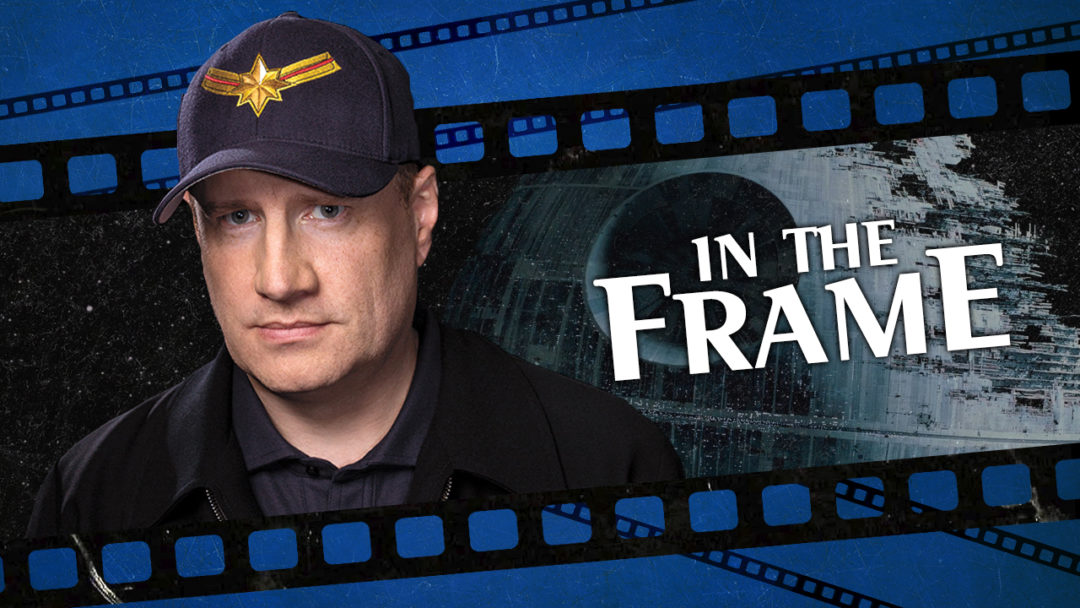It was reported late last week that Kevin Feige had been in contact with Kathleen Kennedy about the possibility of producing a Star Wars film.
This development felt almost inevitable. Feige is one of the defining producers of modern popular culture. Marvel Studios is perhaps the closest relative to Lucasfilm within the Disney corporate structure. Both were products of the same expansionist urge within Disney, purchased as a way for the conglomerate to expand its brand towards the “notoriously hard-to-reach” teenage boy demographic. Both Marvel Studios and Lucasfilm are reliable earners for Disney, producing a number of the company’s billion-dollar hits. However, Feige has arguably run a much smoother and more stable ship.
Feige evokes the classic idea of the Hollywood producer. Although filmmakers like Ryan Coogler (Black Panther), Shane Black (Iron Man 3), James Gunn (Guardians of the Galaxy) and Taika Waititi (Thor: Ragnarok) have been able to put their stamp on individual Marvel Studios films, the company’s output is largely consistent in terms of tone, content, and craft. The films are of a piece with one another, down to the musical scores.
A lot of that is down to Feige operating as overseer. Marvel Studios famously organizes its releases in “Phases,” and plans its schedule five years ahead. This occasionally means steamrolling directorial vision in favor of the studio’s more immediate needs. Edgar Wright (Baby Driver, Scott Pilgrim vs. The World) was originally supposed to direct Ant-Man, but the job eventually went to Peyton Reed. Wright recently explained, “I wanted to make a Marvel movie, but I don’t think they really wanted to make an Edgar Wright movie.” Patty Jenkins (Monster, Wonder Woman) was fired from Thor: The Dark World to make room for Alan Taylor (Terminator Genisys). Jenkins would later diplomatically state, “I could have made a great Thor if I could have done the story that I was wanting to do. But I don’t think I was the right person to make a great Thor out of the story they wanted to do.”

Ava DuVernay famously declined to direct Black Panther because “if there’s too much compromise, it really wasn’t going to be an Ava DuVernay film.” Despite directing Marvel’s first billion-dollar movie, Joss Whedon was so “beaten down” by the “really unpleasant” experience of working on Age of Ultron that he parted ways with Marvel Studios. Lucrecia Martel declined to direct Black Widow when she was told that the company would handle the action scenes themselves without her involvement.
Even the worst Marvel Studios movies – like The Dark World – are simply bland. Although misfires like Elektra, Ghost Rider: Spirit of Vengeance and the 2015 version of Fantastic Four were based on Marvel properties, they were not made within the Marvel Studios production apparatus. Feige has developed a reliable brand, that is part of what makes him such an appealing producer for a Star Wars film.
The Star Wars franchise has traditionally embraced the idea of creative vision above commercial stability or long-term planning. George Lucas tended to create the franchise mythology on the fly.Similarly, Lucas worked hard to keep his Star Wars films free of studio interference. He passed up half-a-million dollars from Fox to keep his licensing and merchandising rights and largely funded the sequels out of his own pocket. In interviews promoting The Empire Strikes Back, Lucas was open in his skepticism about the studio system, explaining, “They’re not filmmakers. I don’t want to have anything to do with them.”
The Star Wars films were originally a work of distinctive artistic vision, speaking to Lucas’ own sensibilities. The Star Wars prequels were uneven and messy, clumsily constructed and awkwardly told. However, they were also very much an expression of Lucas’ unique perspective. They are a fascinating allegory for their cultural moment, with Lucas acknowledging that he used his films to engage with those sorts of issues “open-mindedly.”

The prequels lowered Lucas’ stock as a visionary director. The image of a “betrayed” fan shouting that the prequels “raped my childhood” is a gross cliché, but it has a hint of truth. It’s also hard to have sympathy for Lucas when he likens the $4.5 billion sale of Star Wars to Disney to a deal with “white slavers.”
Disney has since pushed the Star Wars franchise towards a more generic template. In response to the fan outrage over the prequels, both The Force Awakens and The Last Jedi feature a very broad status quo that consciously evokes the template of the original trilogy. The First Order and the Resistance are the Empire and the Rebel Alliance in all but name with the actual politics obscured – appeasing a fandom alienated by the treaties, taxation, and trade negotiations of the prequel films.
Even within the individual films themselves, Disney has been wary of strong authorial voices. The studio was reportedly “not fully satisfied” with director Garth Edwards’ original cut of Rogue One: A Star Wars Story. Reportedly 40% of the movie was reshot, with The Bourne Legacy writer and director Tony Gilroy stepping in to oversee a project that was in “terrible, terrible trouble.” Something similar happened on Solo: A Star Wars Story, when directors Phil Lord and Christopher Miller were fired and replaced with Ron Howard, who reshot three quarters of the film.
Ironically, the most distinctive and auteur-driven of the Disney Star Wars films is The Last Jedi. It is the best reviewed of the sequels, although it remains highly polarizing among certain segments of online fandom. The decision to bring J.J. Abrams back to helm The Rise of Skywalker might reflect his reputation as a safe choice for franchise filmmaking. Kevin Feige is also a safe choice. He has already accomplished with Marvel Studios much of what Disney has attempted to do with Star Wars. He has built a very stable framework that delivers hits through a very familiar template.

Feige produced Black Panther, the first superhero film to be nominated for the Best Picture Oscar. It’s notable that director Ryan Coogler did not receive a corresponding Best Director nomination, solidifying the idea of the film as triumph of production. However, Black Panther’s nomination was also the product of a unique confluence of cultural factors. It seems unlikely that Endgame will be part of this year’s awards conversation, with more attention focused on Joker.
Even without that prestige, Feige has overseen a studio that has seen four of its last five films cross the one-billion dollar mark at the global box office. If you count the Spider-Man films co-produced with Sony, that becomes six of eight. All of the 23 movies in the Marvel Cinematic Universe are rated “fresh” on Rotten Tomatoes. Audiences have responded very positively to these films; Thor is the only film in the MCU with a CinemaScore below an A, earning a B+. That is a phenomenal record.
All this makes Feige is a sensible choice from a financial perspective, one who can potentially appease a fandom that feels poised on the verge of its own civil war. Marvel Studios’ fandom has avoided any deep schisms, despite culture war flare ups over Black Panther and Captain Marvel. This is to Feige’s credit.
The appeal of a producer like Feige is that he mitigates both commercial and creative risk. For a franchise like Star Wars to thrive and grow, it needs to be willing to take risks – pushing beyond potential fan outrage to find new angles for a familiar property. While the Marvel Cinematic Universe has been wildly successful, it is hard to imagine Feige finding room in it for adventurous and boundary-pushing comic book films like The Dark Knight, The Incredibles or Logan.
Then again, that may not be what some fans want from Star Wars at this juncture. Before the Feige news broke, the biggest Star Wars story of the week was the revelation that George Lucas was disappointed that Disney had ignored his plans for a sequel trilogy. However, Lucas was self-aware, musing that “a lot of fans would have hated it.”





